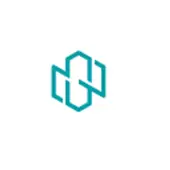CFDs are complex instruments and come with a high risk of losing money rapidly due to leverage. Between 51% and 89% of retail investor accounts lose money when trading CFDs. You should consider whether you understand how CFDs work and whether you can afford to take the high risk of losing your money.
What is commodity trading in forex?
Commodity trading in forex involves speculating on the price movements of physical goods rather than currencies. These markets range from precious metals and energy products to agricultural resources. Unlike traditional commodity exchanges, forex brokers allow you to trade commodities without owning the underlying asset.
Commodities regularly behave differently from currency pairs, often reacting more sharply to specific macroeconomic events. For instance, oil prices frequently mirror geopolitical tensions, while gold often gains during financial uncertainty. This non-correlation provides opportunities for risk management and diversification within a trading portfolio.
local_shippingTrading specific commodities
Are you looking for the best brokers to trade certain commodities? We have you covered! Check out our guides to the best forex brokers for trading gold, palladium, metals in general, or agricultural commodities.
Key features to look for in commodity forex brokers
Finding the right forex broker for commodities is about more than low spreads. Regulation should be the first checkpoint to ensure fund security and transparency. We always recommend brokers that are licensed by reputable authorities like the FCA, ASIC, or CySEC — the kind of brokers that typically score above 90 in our Trust Score methodology.
Access to a variety of commodities is equally important. Brokers that offer metals, energies, and soft commodities allow greater flexibility in trading strategies. Advanced trading tools, mobile access, and transparent pricing structures round out the must-have features for navigating volatile commodity markets.
How do commodity spreads and fees work?
Commodity trading costs depend heavily on spreads and commissions. The spread — the difference between the buy and sell price — can impact profitability, especially for short-term traders. Lower spreads typically reduce costs but may come with added commissions.
compare_arrowsFixed and zero spreads
There are typically two different methodologies brokers follow for determining spreads: they either offer fixed spreads or variable spreads. Fixed spreads can offer certainty in trading costs during volatile moments, but may come at the sacrifice of benefitting from lower spreads during stable market conditions. Note that brokers who advertise zero spreads will either charge commissions instead or will simply be a low variable spread in actuality.
Overnight holding fees, known as swaps, are another consideration. Commodities often carry higher swap rates due to storage and delivery costs factored into pricing. From experience, comparing total costs across brokers — including withdrawal and inactivity fees — can prevent unwelcome surprises.
What is the difference between CFDs and futures?
CFDs (Contracts for Difference) and futures are popular instruments for trading commodities, but they cater to different strategies. CFDs are flexible, offering no expiration dates and the ability to trade fractional contracts, making them ideal for smaller accounts.
Futures, by contrast, are standardized contracts with fixed expiration dates and are traded on regulated exchanges. While they offer deeper liquidity and price transparency, they typically require larger investments. We find CFDs more suited to retail traders, while futures often attract institutional investors with larger capital reserves.
Is commodity trading right for you?
Commodity trading isn’t for everyone, but it suits traders looking for volatility and diversification. Gold, oil, and agricultural products often move independently of currency markets, offering alternative opportunities during forex stagnation.
floodCommodities for uncertain times
In our experience, commodities tend to attract traders during times of economic uncertainty. Gold, for instance, often becomes a safe haven when currencies weaken. Meanwhile, oil prices reflect geopolitical shifts and supply-demand imbalances, making it a favorite for short-term traders.
We must emphasize the need for research and preparation. Commodities can be volatile, with prices influenced by supply chain disruptions, geopolitical events, and natural disasters. However, if you thrive on market analysis and global news, commodities may be a great way to complement your forex strategy.
BrokerNotes.co 2025 Overall Rankings
To recap, here are our top forex brokers for 2025, sorted by Overall ranking.
Popular Forex Guides
More Forex Guides
Popular Forex Reviews
Methodology
At BrokerNotes.co, our data-driven online broker reviews are based on our extensive testing of brokers, platforms, products, technologies, and third-party trading tools. Our product testing extends to the quality and availability of educational content, market research resources, and the accessibility and capabilities of mobile platforms and trading apps. We also dive into each broker’s trading costs, such as VIP rebates, inactivity fees, custody fees, bid/ask spreads, and other fee-based data points.
Steven Hatzakis, an industry veteran with decades of experience in the forex market, leads the BrokerNotes research team. All BrokerNotes content is researched, fact-checked, and edited by the research team.
All websites and web-based platforms are tested using the latest version of the Google Chrome browser. Our Desktop PCs run Windows 11, and we use MacBook Pro laptops running the latest version of macOS to test trading on the go. We test mobile apps and products using iPhones running iOS 17 and Samsung devices running Android OS 14.
Note: The online brokers on our site provide the ability to trade forex in one or more ways, such as non-deliverable spot forex (i.e., rolling spot contracts), contracts for difference (CFD), or other derivatives such as futures. The availability of specific markets or features will depend on your country of residence and the broker's applicable brand or entity that services your account(s).
Forex Risk Disclaimer
There is a very high degree of risk involved in trading securities. With respect to margin-based foreign exchange trading, off-exchange derivatives, and cryptocurrencies, there is considerable exposure to risk, including but not limited to, leverage, creditworthiness, limited regulatory protection and market volatility that may substantially affect the price, or liquidity of a currency or related instrument. It should not be assumed that the methods, techniques, or indicators presented in these products will be profitable, or that they will not result in losses. Learn more about foreign exchange risk.
About the Editorial Team
Founded in 2014 and acquired in 2021, BrokerNotes.co provides unbiased forex broker reviews and ratings to help traders and investors find the best broker for their needs. With over 60 brokers reviewed, our editorial team has published thousands of words of research to help our readers make informed choices.
Joey Shadeck is the Content Strategist and Research Analyst for BrokerNotes.co and ForexBrokers.com. He holds dual degrees in Finance and Marketing from Oakland University, and has been an active trader and investor for close to ten years. An industry veteran, Joey obtains and verifies data, conducts research, and analyzes and validates our content.
Jeff Anberg is a Senior Editor at BrokerNotes.co and ForexBrokers.com. Along with years of experience in media distribution at a global newsroom, Jeff has a versatile knowledge base encompassing the technology and financial markets. He is a long-time active investor and engages in research on emerging markets like cryptocurrency. Jeff holds a Bachelor’s Degree in English Literature with a minor in Philosophy from San Francisco State University.










 Capital.com
Capital.com
 Swissquote
Swissquote
 OANDA
OANDA
 AvaTrade
AvaTrade
 Plus500
Plus500
 FXCM
FXCM
 Pepperstone
Pepperstone
 XM Group
XM Group
 Admirals
Admirals
 FP Markets
FP Markets
 IC Markets
IC Markets
 FxPro
FxPro
 Tickmill
Tickmill
 Markets.com
Markets.com
 BlackBull Markets
BlackBull Markets
 Fineco
Fineco
 Vantage
Vantage
 ThinkMarkets
ThinkMarkets
 DooPrime
DooPrime
 HYCM (Henyep Capital Markets)
HYCM (Henyep Capital Markets)
 HFM
HFM
 Trading 212
Trading 212
 Questrade
Questrade
 ActivTrades
ActivTrades
 Trade Nation
Trade Nation
 Moneta Markets
Moneta Markets
 BDSwiss
BDSwiss
 TMGM
TMGM
 Eightcap
Eightcap
 Spreadex
Spreadex
 MultiBank
MultiBank
 ACY Securities
ACY Securities
 easyMarkets
easyMarkets
 Exness
Exness
 VT Markets
VT Markets
 IFC Markets
IFC Markets
 RoboForex
RoboForex
 Octa
Octa
 IronFX
IronFX
 Axi
Axi
 Earn
Earn
 ATFX
ATFX
 iFOREX
iFOREX
 FXPrimus
FXPrimus
 FXOpen
FXOpen
 Markets4you
Markets4you
 GBE brokers
GBE brokers
 Alpari
Alpari
 FXGT.com
FXGT.com
 Xtrade
Xtrade
 Libertex (Forex Club)
Libertex (Forex Club)
 TopFX
TopFX
 LegacyFX
LegacyFX

